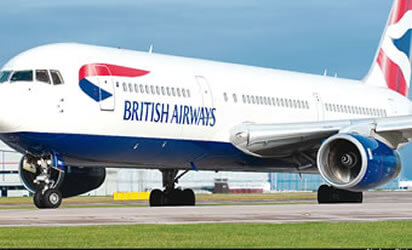The carrier has its main base at London Heathrow, one of, if not the world’s busiest international airports with daily flights to over 170 destinations in 70 countries. Currently, British Airways has over 280 aircraft, including the A380 and 787 in its fleet with more to come.
According to the airline, it carries more than 40 million customers, a year and serves those customers 35 million cups of tea, 36.5 million meals and 3.7 million bottles of wine to show its level of hospitality and determination to make flying more seamless for its customers on all routes.
There is no doubt that the British number one flag carrier has been able to carve a niche for itself, thanks to its ever thinking management that is always working ahead to continue to position the airline as a leading carrier. This has continued to make it tick coupled with the friendly environment created by the UK government.
The story of the airline’s Terminal 5 constructed and opened in 2008 at a cost of £4 billion for the use of its passengers across the world is one of the ways the airline has shown it absolutely understood the rudiments of airline business.
The terminal which was voted the best airport terminal in the world for the fifth year running by the Skytrax World Airport Awards 2012-2016 with five floors large enough to hold 50 football pitches, offers a seamless airport experience with stylish shops, restaurants and luxurious lounges.
With all the standard facilities at the terminal including the fantastic building products used, essential facilities like unlimited number of toilets provided for passengers’ comfort in choice areas, plus even the presence of electricity which automatically comes on and switches off when the need arises. This can only be made possible by an airline management that really has a grip of the business.
Besides the wonderful infrastructural capacities the airline can boast of, you don’t need anyone to tell you that its major asset is its over 40,000 workers including 15,000 cabin crew, 4,000 pilots and 5,000 engineers who regularly display their absolute patriotism and passion on the job when they come in contact with customers.
Worthy of note is the passion often displayed by the airline’s cabin crew in particular, who have been trained to ‘spoil’ their passengers right from the premium economy class to the business and first class with assorted wines, food, drinks and smiles as soon as they board.
According to Tade, who has been flying on the business class of British Airways for seven years on the Lagos/London route, British Airways does not joke with its passengers particularly on the Nigerian route. “Maybe they realise the potential in Nigeria because of its population and strategic place.”
Tade attributed this to why the airline quickly dealt with a cabin crew who recently insulted its Nigerians travelers, saying, “This is the extent the airline can go to keep its customers.”
Besides all the goodwill, other things that make the airline a darling of many passengers including Nigerians is not far from the opportunity given to passengers to enjoy free seat selection within 24 hours of departure, no charge to pay for bookings by debit card, flights to mainstream airports close to the destinations customers want to travel to and above all, the generous free baggage allowance depending on your class which many Nigerians capitalise on.
The airline which celebrated its 90th anniversary in 2009, apart from having a good grip on the airline business equally did not forget the importance of keeping past records as shown in the volume of memorabilia preserved in its heritage collection centre.
The British Airways Heritage collection is an extensive document archive recording the formation, development and operations of British Airways and its predecessor companies, as well as memorabilia and artefacts with pictures and other activities that marked Imperial Airways first flight operations to Kano, Nigeria in 1936 conspicuously displayed at the centre.
Looking at the airline’s activities holistically, there is no doubt that its continuous stability in the face of global challenges is not far from the proactive gift endowed in the airline’s management that works ahead for the progress of the airline.
Sincerely speaking, it may take airlines in Nigeria and the African continent in general 50 or many more years to get things right. In other words, airlines in Nigeria and the rest of Africa have not even started or don’t even understand what it takes to run an airline profitably, a situation which has been compounded by the lack of cooperation from the African governments. There is a lot to learn from mega carriers like British Airways.






